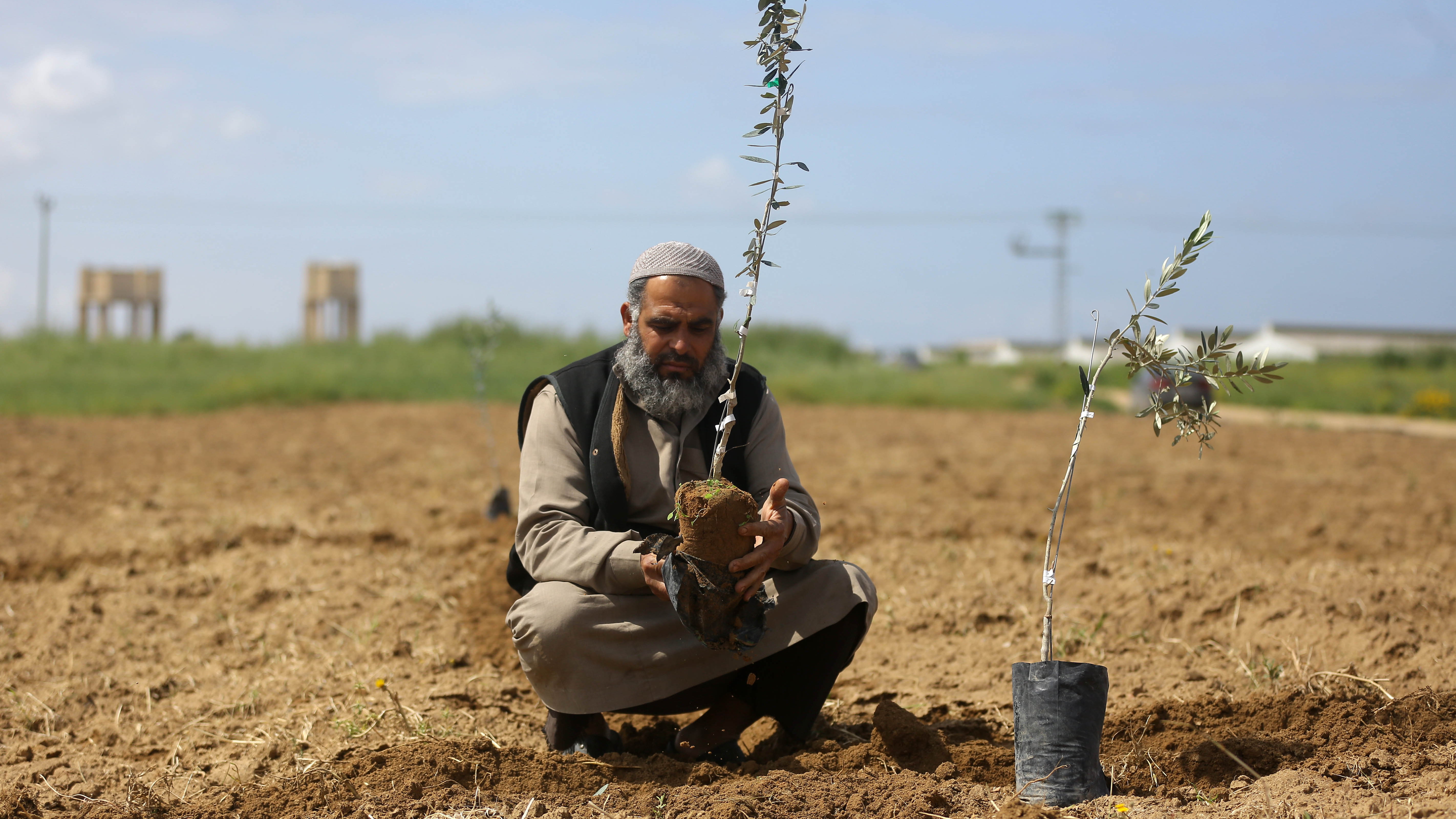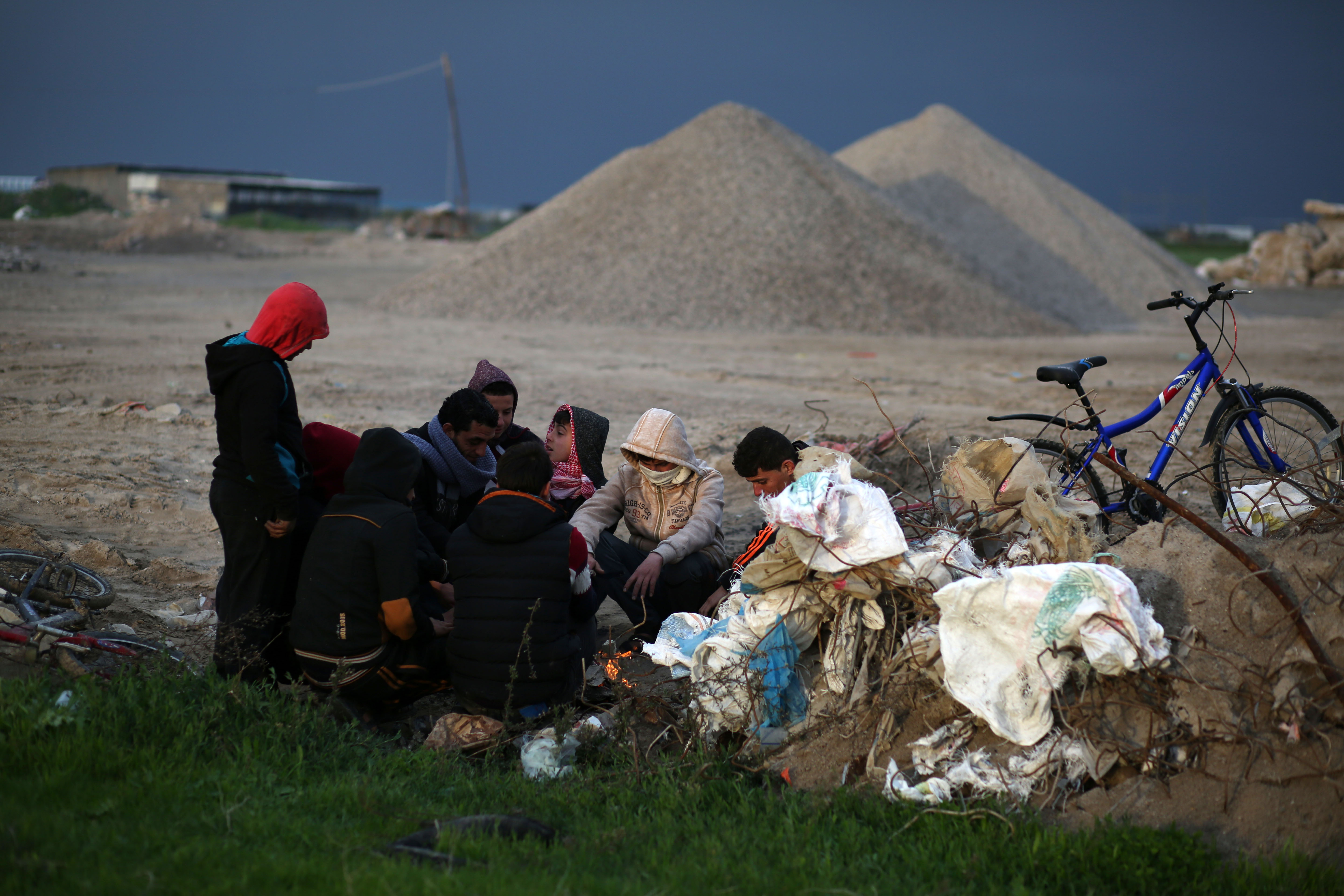
A Palestinian plants olive trees near the border between Gaza and Israel during a protest marking Land Day, March 29, 2016. /Getty
A Palestinian plants olive trees near the border between Gaza and Israel during a protest marking Land Day, March 29, 2016. /Getty
Editor's note: Thomas O. Falk is a London-based political analyst and commentator. He holds a Master of Arts in international relations from the University of Birmingham and specializes in U.S. affairs. The article reflects the author's opinions and not necessarily the views of CGTN.
For decades, China seemed far, far away. Not just geographically but also in people's minds. However, that changed suddenly at the end of the 20th century. Now, China has risen on par with the U.S. and changed the unipolar world that has been known since the end of the Cold War.
China continues to change rapidly – deliberately ignored by the Western world since counterproductive to the anti-China hysteria narrative. The development and establishment of a Chinese form of the "rule of law" are among the primary goals of the country's five-year plan. Since the beginning of the new year, a new Civil Code takes into effect and regulates marriage to inheritance and adoption to property and all civil law disputes.
However, China's enormous growth affects all major levels of globalization – education, infrastructure, economy and finance. And as presumably the world's largest economy by 2028, China will be a crucial economic partner for the West.
With this growth, the importance of China on the world political stage is also increasing steadily, and cooperation with Beijing is also essential on global issues such as the climate crisis, the nuclear threat and health crisis, as seen with the COVID-19 pandemic.
Ignoring China as a technological, scientific, economic and financial power or deliberately treating it as unequal cannot be afforded by anyone any longer. Europe, in particular, must not worry that Washington still has to get used to this new reality if one seeks to secure its own prosperity. One must hope that Europe eventually realizes that China is not an opponent, indeed not an enemy, but a global partner who is becoming more and more critical and without whom real change can no longer be achieved.
Particularly since China will also play an increasingly significant role in one of the most volatile regions globally.
This became evident, not least in the last few days and the Israel-Palestine conflict that flared up again.
Here, as chair of the UN Security Council, Beijing actively tried to mediate the escalating situation and pressed for two urgent consultations by the Council, the most recent on Sunday.
It is a role added to China's new status and shows that Beijing is ready to take on the geopolitical responsibility ascribed to a power.
Chinese State Councilor and Foreign Minister Wang Yi recently said of the conflict that the leading cause of the deteriorating situation was the persistent lack of prospects for the Palestinians. This is where the UN has failed in recent years, according to Wang Yi.
China has hence clearly positioned itself on the subject and is calling for a fair solution, i.e. a two-state solution to the conflict will continue to make every effort to get the UN Security Council to act and has continuously and very openly condemned violence against civilians and called on all parties to refrain from provocative words and actions.
On Sunday evening, however, there was no progress at the UN Security Council meeting. Predictably, Washington blocked a statement for which China sharply criticized the U.S. The reasons are as simple as obvious: The U.S. remains Israel's primary ally and have historically blocked almost all resolutions or communiques that it deemed harmful to Israel.

Palestinian demonstrators huddle around a fire to keep warm during clashes with Israeli security forces on the eastern outskirts of Gaza City, January 26, 2018. /Getty
Palestinian demonstrators huddle around a fire to keep warm during clashes with Israeli security forces on the eastern outskirts of Gaza City, January 26, 2018. /Getty
How China's attempt to deescalate became part of the latter, is not really clear. It seems that the geopolitical tit for tat between Beijing and Washington was the real reason for the U.S.'s stance, not any genuine advancements in the current crisis. However, time will tell.
Either way, China's attempts for de-escalation in the current conflict are more than lip service. China is serious about its role in the region and seeks to take on responsibility. The latest example was its foreign minister's trip to the region and a new cooperation agreement with Tehran.
On his trip to Saudi Arabia, Turkey, the United Arab Emirates, Iran, Oman and Bahrain in the last week of March, Wang Yi presented a five-point plan for security and stability in the Middle East.
In it, he called on the rival powers in the region to "respect one another, guarantee equality and justice, strive for nuclear non-proliferation, jointly promote collective security and accelerate development cooperation" – words that can only be helpful.
With China's help with security in the Gulf, the dispute over the Iranian nuclear program and the Israeli-Palestinian conflict, one is undoubtedly better off than without Beijing. Times have simply changed.
In any case, China has become a serious actor in the Middle East as well and is here to stay. Washington and Brussels will not only have to accept this reality but, ideally, utilize it for everyone's benefit.
Potential peace-building aspects of cooperation between the West and China are more important than ever in these times of upheaval. Perhaps such cooperation can help to defuse the tensions between China and the Western world one day.
(If you want to contribute and have specific expertise, please contact us at opinions@cgtn.com.)

